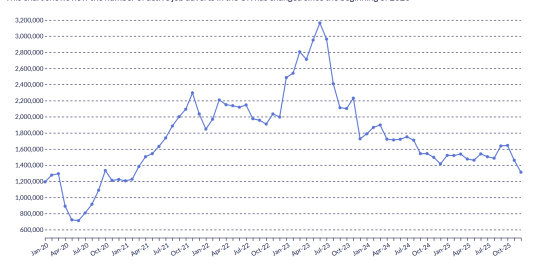For many workers, getting out of bed and off to work on time can be hard enough without the added obstacles imposed by traffic, bad weather and delayed public transport. Perhaps this is why 20 per cent of workers are late to work at least once a week, and 10 per cent arrive late at least once a month, according to a new survey from CareerBuilder.co.uk
The vast majority of employers still place a value on timeliness, with 51 per cent expecting their employees to be on time every day and a third of employers (31 per cent) admitting to having fired an employee for being late. This is despite 79 per cent of employers considering “working 9 to 5” to be an antiquated idea.
Some employers are more lenient than others, however. Nearly one third (33 per cent) say they don’t mind the occasional late arrival, as long as it doesn’t become a pattern. Sixteen per cent say they don’t need employees to be punctual if they can still get their work done. Indeed, 64 per cent of workers who arrive late will stay later to make up the time. Of the workers who have admitted to being late for work in the past, 18 per cent have lied about the reason for their tardiness. Male workers are more likely to admit to lying about their reason for being late than their female counterparts – 25 per cent and 13 per cent respectively.
Why the Delay?
Traffic is the most common cause of tardiness among employees (31 per cent), followed by bad public transport (16 per cent) and bad weather (10 per cent). Lack of sleep slows down nearly one in ten workers, while getting the kids off to daycare or school, and lack of organization are roadblocks for 5 per cent of workers.
“Employers understand that things in your life will disrupt your routine and they are willing to overlook the occasional late arrival,” says Scott Helmes, Managing Director of CareerBuilder UK. “When tardiness becomes a habit, however, it starts to negatively affect productivity and can even hurt workplace morale. At such a point, employers may be driven to take disciplinary action.”
Helmes offers the following advice to free employees who are prone to showing up late of their bad habits:
- Mind the weather: Check the weather forecast so you can plan ahead for nasty conditions
- Know your route: Download a transportation app to get alerts regarding any traffic or transit delays that could affect you
- Plan ahead: Organise your purse or briefcase the night before so you do not feel as rushed in the morning
The data is from a recent nationwide survey of more than 1000 workers and 500 employers across various industries and company sizes, and looks at the prevalence of tardiness in the workplace.






